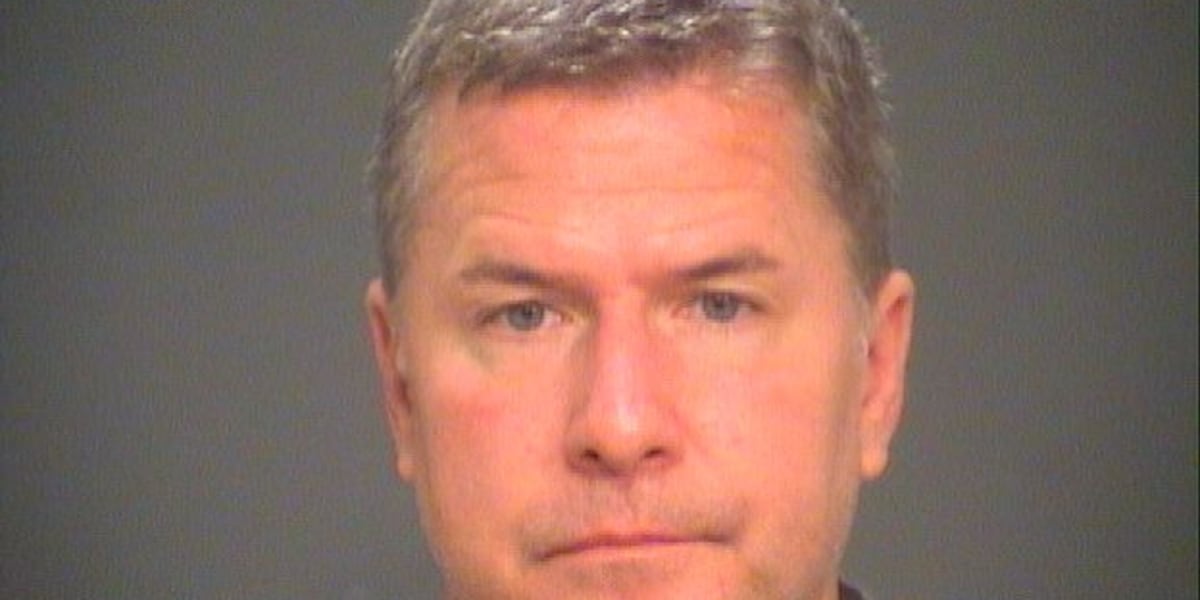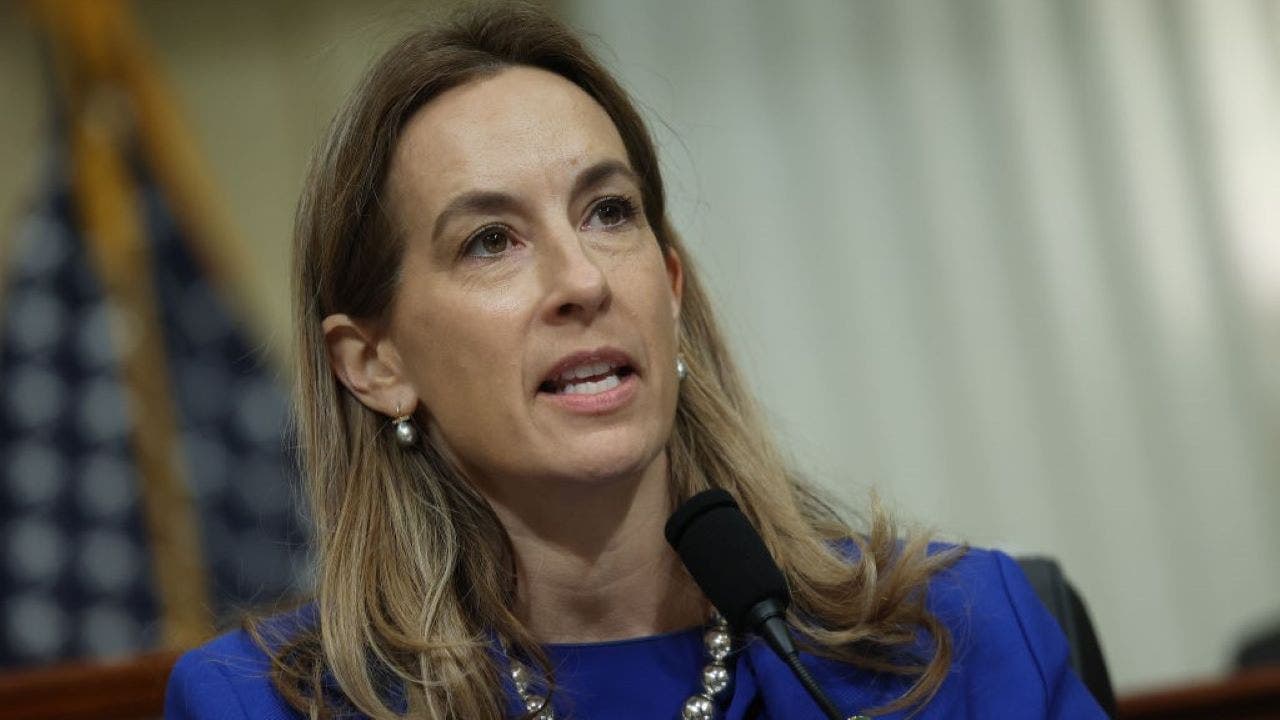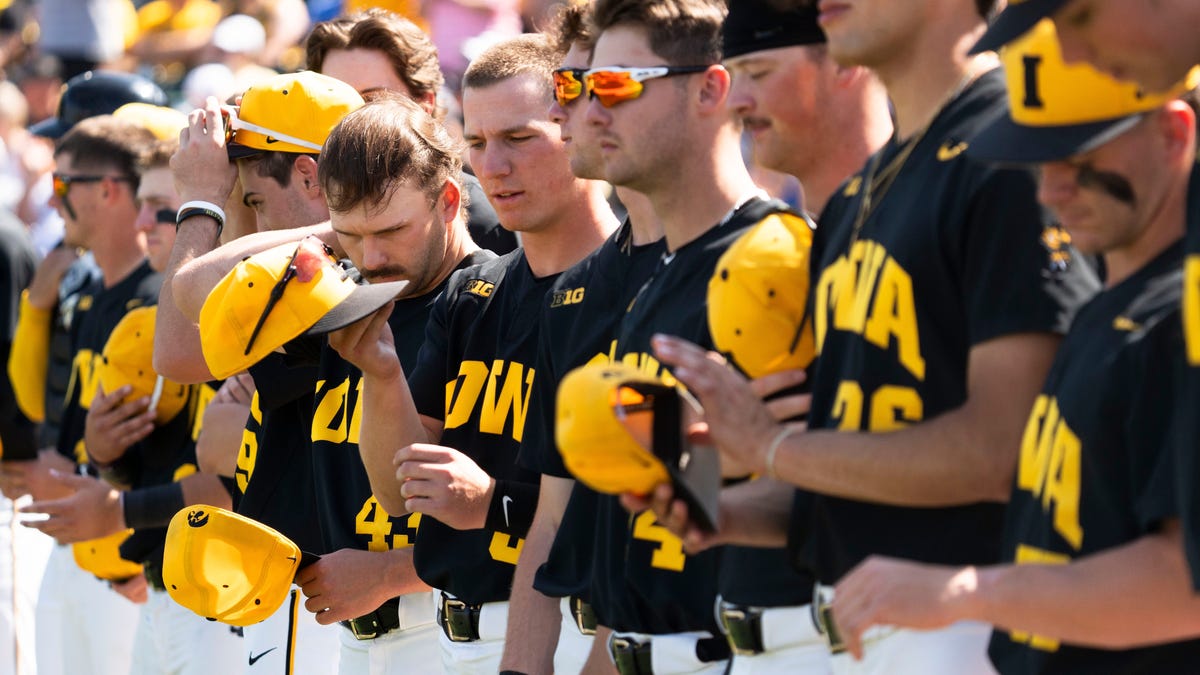Education
Opinion | Is ‘Peak Woke’ Behind Us or Ahead?

No figure is more associated with the ideological revolution that shook elite American institutions in the Trump era than Ibram X. Kendi, the scholar of racism and the definer of “antiracism” as a worldview unto itself. So there’s a symbolic weight to the news that Kendi’s Center for Antiracist Research at Boston University, funded by a lavish gift from the Twitter founder Jack Dorsey back in 2020, will be laying off 15 or 20 staff members — confirming the sense (among many liberals, especially) that “peak woke” is behind us, and the revolution has run its course.
Has it? By some definitions, yes. The wave of cancellations and resignations and public-monument removals has receded. The attempts to use “woke capital” to effect progressive change have met strong resistance, and corporations are losing enthusiasm for a vanguard role.
Meanwhile, there is more intellectual and political energy in anti-wokeness now, evident not just in backlash in red states but in this autumn’s roster of new books, which includes critiques of social justice ideology from the socialist left, the center left and the right. The Supreme Court’s ruling against affirmative action has created new legal roadblocks for Kendi-style progressivism. The mood in elite journalism is less ideologically committed and more skeptical and critical.
But any rollback is also unevenly distributed. I’ve written before about why progressive orthodoxies seem stronger in academia than in the media, but anyone who wants to understand that dynamic should read my colleague Michael Powell’s recent report on so-called diversity statements in higher education. These exemplify a different aftermath for “peak woke” — not the ideology’s retreat, but its consolidation and entrenchment.
Powell’s story starts with Yoel Inbar, a psychology professor who lost a potential job at the University of California at Los Angeles after a group of graduate students protested his opposition to requirements that academic job candidates detail their commitment to “diversity, equity and inclusion.” Professor Inbar, a political liberal, had dutifully filled out such a statement himself. But from the perspective of the graduate students, mere compliance was insufficient; his principled critique of the practice made him ideologically unacceptable.
Inbar’s personal story seems like a classic cancellation. But what my colleague’s reporting makes clear is that the spread of diversity statements isn’t really a mechanism to flush out and cancel noncomformists. It creates conformity more invisibly, by training would-be academics to advertise themselves as ideological team players and by screening out job candidates who don’t quite understand the rules of progressive discourse — who imagine, for instance, that advertising their desire to “treat everyone the same” is an adequate anti-racist commitment.
The counterargument is that diversity is an apolitical concept — who could be against it? But imagine that nearly half of America’s large universities, in response to ideological pressure groups, began asking job candidates to produce a statement affirming American patriotism — just as an apolitical concept, folks, something we can all agree is good. And then further imagine that it became clear that some answers — “I think dissent is patriotic,” or even “I love America because it’s a nation of immigrants” — were often penalized as insufficiently patriotically correct.
Most liberals would regard this as rank McCarthyism — or arguably even worse than McCarthyism, since the McCarthy-era loyalty oaths at, for instance, the University of California required only a generic affirmation of loyalty to the U.S. Constitution, not a statement of positive ideological belief.
Yet an equivalent exercise in ideological policing has thus far raised strong resistance mostly from red-state governors, tenured troublemakers and free-speech organizations; the liberal professoriate writ large has gone along with it.
There are two points to draw out of this situation. The first is about the present: Many free-speech-oriented liberals have been eager to pivot from worrying about an illiberal left to criticizing the excesses of red-state governors and school boards. But so long as bastions of liberal intellectual life are governed by ideological loyalty oaths, that pivot can only be partial, and Ron DeSantis and Greg Abbott can always point a finger back.
The second is about the future. In the Trump years we saw that in an atmosphere of political emergency, when fear of populism or authoritarianism organized every left-of-center thought, many liberals struggled to resist demands of ideological fealty made by movements to their left.
Now the emergency mentality has retreated, and resistance and skepticism are easier. But what if it comes back, whether under a Trump restoration or in some other form?
In that scenario, today’s entrenchment of ideological conformity surely bodes well for tomorrow’s would-be enforcers. If liberals accept loyalty oaths under calm conditions, what will they accept in an emergency? Probably too much — in which case the next peak of wokeness will be higher, the next revolution more complete.

Education
Video: Tufts Student Speaks Publicly After Release From Immigration Detention

new video loaded: Tufts Student Speaks Publicly After Release From Immigration Detention
transcript
transcript
Tufts Student Speaks Publicly After Release From Immigration Detention
A federal judge ordered the release of Rumeysa Ozturk, a Turkish citizen studying at Tufts University on a student visa. She is one of thousands of students who face deportation, as the Trump administration escalates its attack on higher education.
-
“We love you.” “In the last 45 days, I lost both my freedom and also my education during a crucial time for my doctoral studies. I am so excited to get back to my studies, community, friends, professors and my students. America is the greatest democracy in the world, and I believe in those values that we share. I have faith in the American system of justice.”
Recent episodes in News Clips: U.S.
Education
‘The Only Person in the World Claiming to Be the Pope Right Now’

Of all the contenders to be the next pope, Danny Kind might not be an obvious choice. His shaggy hair is tinted green, and the other day he was wearing a Korn T-shirt under his ceremonial robes.
“I’m an Ashkenazi Jew from Orlando, so I’m not very Catholic,” he said. There’s also that.
None of this is disqualifying in a class at the University of Chicago called “The Italian Renaissance: Dante, Machiavelli, and the Wars of Popes and Kings,” better known by students as “pope class” or “pope LARP” (as in live-action role play). The centerpiece of the class is a simulation of the conclave of 1492, an historical gathering rife with accusations of scandal and corruption.
This is the 15th year since Prof. Ada Palmer began running the simulation, but the first time that it has been interrupted by the death of an actual pope. Pope Francis died on April 21, the same day that the students were set to vote in their own conclave.
The class arrived that day at Rockefeller Chapel, a Gothic Revival structure on campus that stands in for the Sistine Chapel, with a surreal sense of the weight of their decision.
“I’m a Catholic so it kind of sucked for me, but there was a lot of excitement,” said Joseph DePaula, 21, a third-year student who took the class two years ago and returned this year as a volunteer.
When Mr. Kind from Orlando — Cardinal Ascanio Sforza in the simulation — was elected on the fifth ballot, volunteers waved white flags from a balcony, symbolizing the smoke that billows from the Sistine Chapel when the cardinals have chosen a new pope.
Dr. Palmer, a historian and novelist, compared the class to the history version of a language immersion class. And the approach does more than help students recall names and dates. It is also a lesson in “plural power,” where anyone can change the course of history.
In the simulation, “everybody has power but nobody has control,” Dr. Palmer said. “Even the most powerful people don’t actually manage to control things enough to get the outcome they want, and even the least powerful people, when they work at it, can affect and influence what happens in the end.”
By last week, the final stretch of the simulation, some students had a hard time differentiating their real lives from their 15th-century identities.
Elsa Cukierman, who portrayed the nobleman Franceschetto Cybo, said she once accidentally called her real-life boyfriend by the name of her character’s wife. Others frantically responded to reports of a rival’s treachery on their phones at a nightclub at 3 a.m.
“Don’t eat, don’t speak, just pope,” said Julia Morales, who painted her nails baby blue to match the dress she wore as Lucrezia Borgia, the illegitimate daughter of the real Pope Alexander VI. (Events evolved differently in this year’s simulation.)
“We’re great friends in real life,” chimed in Emily Curran, dressed in the red robes of Cardinal Ardicino della Porta Jr., who opposed the Borgia family’s aspirations. “We just haven’t been able to hang out because we can’t talk about anything else but pope class.”
On April 30, the final day of the simulation, the students arrived in a bustle of excitement. They rifled through the racks of clothing that Dr. Palmer has procured over the years from sources like Renaissance fairs and the BBC’s costume department. She has alerts on Etsy and eBay for the phrase “used Shakespeare costume.”
The pope opened the proceedings with a moment of silence. At one point he assented to a petition to give an Italian cardinal control over a town in Bologna with an enthusiastic “hell, yeah!”
A duel broke out between Michael Tarchaniota Marullus and Pandolfo IV Malatesta. Then the pope himself threw off his robes to initiate his own duel with Cesare Borgia. (Borgia immediately surrendered, to the pope’s apparent disappointment.)
In real life, the 1492 conclave ended with the selection of Rodrigo Borgia as Pope Alexander VI, an outcome so heavily influenced by bribery that it inspired new rules against simony, or the selling of church offices.
But the class is a simulation, not a re-enactment, Dr. Palmer explained. That means that while students portray (mostly) real-life historical figures, they are set loose to make their own decisions.
Thus the 2025 election of Ascanio Sforza, a figure who did exist, as Pope Ambrose, who did not.
The recent success of the movie “Conclave” added to the feeling that the simulation was relevant to the real world this year. One group went to the theater in cardinal costumes, on loan from Dr. Palmer. As for the real conclave in Rome this week, Mr. Kind and several others said they were rooting for Cardinal Luis Antonio Gokim Tagle, a contender from the Philippines who is often called the “Asian Francis.”
At the end of the final simulation, students bought art and made hasty marriage arrangements, rushing to fulfill as many of their characters’ objectives as possible. Then they took off their costumes and made their way to a classroom, where they debriefed and revealed various schemes and misunderstandings.
Cesare Borgia arrived toting a skateboard. Mr. Kind opened up his laptop and put on a playlist including Joy Division and Modest Mouse. A cluster of gods and angels snacked on Oreos.
For Mr. Kind, his election as Pope Ambrose was the culmination of years of dreaming. He heard about the class from a high-school history teacher, and wrote his admissions essay to the university about his desire to participate. Right before the vote, he kissed his grandfather’s small silver mezuza, which he wears around his neck.
Mr. Kind is not the first Jewish pope, Dr. Palmer said. There have also been two Muslim popes and a transgender Catholic pope.
Mr. Kind broke down in tears when he removed his red cardinal vestments to don the white and gold robes of the Vicar of Christ. The experience was almost intoxicating. “Last Monday I got to excommunicate a guy,” he recounted. And given the circumstances swirling outside campus, it was hard not to muse about the possibility of real power.
“As far as I know, I’m the only person in the world claiming to be the pope right now,” Mr. Kind said. “I think that technically makes me pope.”
Education
Trump Calls for 20,000 Extra Officers to Help With Deportation Efforts

President Trump ordered the Department of Homeland Security on Friday to increase the deportation force of the United States by 20,000 officers, a move that would lead to an enormous expansion of immigration enforcement if realized.
In a provision tucked into a presidential proclamation focused on pushing undocumented immigrants to leave the country voluntarily, Mr. Trump called on the Department of Homeland Security to soon begin “deputizing and contracting with state and local law enforcement officers, former federal officers, officers and personnel within other federal agencies, and other individuals.”
It was unclear how such an effort would be funded, one of several major logistical hurdles to such a large operation. There are now around 6,000 officers focused on deportation efforts at Immigration and Custom Enforcement.
Mr. Trump has pushed to deputize state and local law enforcement officers for immigration enforcement before, and Department of Homeland Security officials have already signed a series of agreements with local law enforcement in the months since took office. Late last month, local law enforcement officials in Florida assisted ICE in an operation that led to the arrest of more than 1,100 migrants across the state.
The Trump administration has spent the past few months attempting to make good on the president’s promise of mass deportations by conducting sweeping raids in major cities, arresting international students and allowing officers more freedom where they make arrests, like in courthouses. But it has still struggled to reach the pace that would be necessary for Mr. Trump’s expansive deportation goals.
In recent weeks, the Trump administration has turned to pushing for migrants to leave the country on their own accord, a concept known as “self-deportation.” Earlier this week, department officials said they would pay migrants $1,000 and the cost of their travel if they left the country voluntarily and used a government app to do so.
In his proclamation Friday, Mr. Trump repeated that call, labeling it “project homecoming.”
“This proclamation establishes Project Homecoming, which will present illegal aliens with a choice: either leave the United States voluntarily, with the support and financial assistance of the federal government, or remain and face the consequences,” the proclamation read.
Mr. Trump ordered the Department of Homeland Security and the State Department to begin a “nationwide communications campaign” to tell migrants of the self-deportation offer and to warn them that not doing so would lead to stiffer consequences.
Beyond being arrested and deported, the proclamation warned that migrants could face “fines as consistent with applicable law for immigration-related crimes; the garnishment of wages; and the confiscation of savings and personal property, including homes and vehicles.”
-

 Cleveland, OH1 week ago
Cleveland, OH1 week agoWho is Gregory Moore? Former divorce attorney charged for murder of Aliza Sherman in downtown Cleveland
-

 News1 week ago
News1 week agoU.S. and China Dig In on Trade War, With No Plans for Formal Talks
-

 Politics1 week ago
Politics1 week agoRep. Mikie Sherrill suggests third Trump impeachment as she campaigns to be next New Jersey governor
-

 Politics1 week ago
Politics1 week agoTrump posts AI image of himself as Pope amid Vatican's search for new pontiff
-

 News1 week ago
News1 week agoFamily statement: Rodney Hinton Jr. walked out of body camera footage meeting with CPD prior to officer death
-

 News1 week ago
News1 week agoAre Politicians Too Old? California Democrats Want to Debate an Age Cap.
-

 World1 week ago
World1 week ago‘Don’t see a major war with India, but have to be ready’: Pakistan ex-NSA
-
News1 week ago
Stock market today: Dow, S&P 500, Nasdaq futures jump amid jobs report beat, hopes for US-China talks












